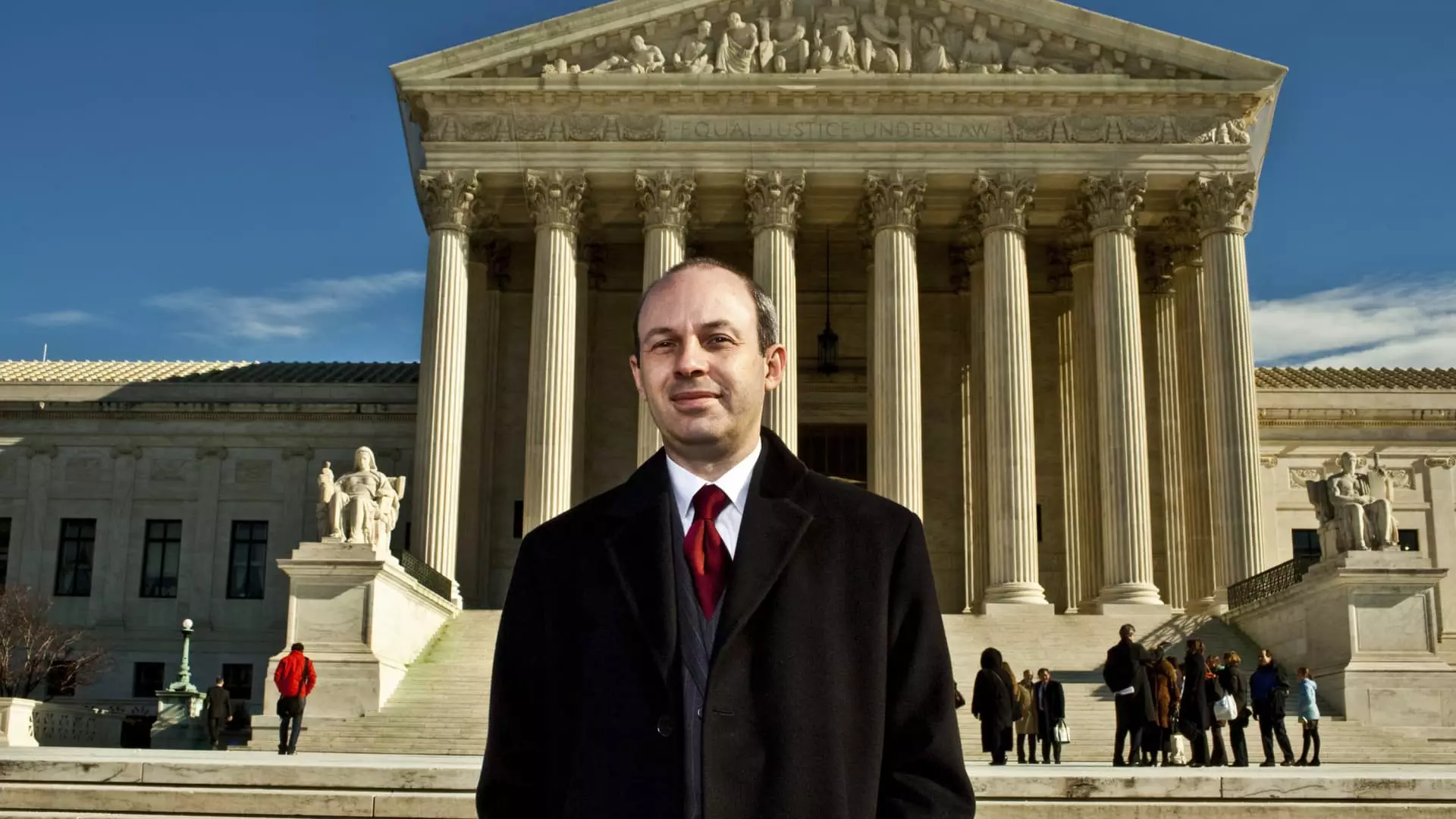In an era defined by rapid technological advancements and evolving legal landscapes, the intersection of law and finance has come under intense scrutiny. The case of Tom Goldstein, a prominent Supreme Court attorney and publisher of SCOTUSblog, serves as a striking example of the complexities arising from the use of cryptocurrency within the judicial system. Recently, a federal judge deemed Goldstein a “serious” flight risk associated with his criminal tax evasion charges, leading to his arrest and detention without bail. The implications of this case traverse beyond Goldstein’s individual circumstances, encapsulating larger themes of accountability, regulatory oversight, and the ethical dilemmas faced by those in elite legal positions.
Goldstein faces severe allegations centered on tax evasion, with claims he failed to report significant income derived from poker winnings amounting to over $5.3 million. Moreover, prosecutors allege that he misappropriated his law firm’s funds to settle gambling debts. The contention that an individual of Goldstein’s legal stature might evade tax responsibilities raises fundamental questions about ethics within the legal profession. Beyond his alleged crimes, Goldstein’s actions leading up to his recent arrest point towards a potential disregard for legal constraints, particularly his management of cryptocurrency wallets.
Goldstein purportedly controlled two cryptocurrency accounts, through which he received more than $8 million within just a week. This dramatic spike in activity post-indictment, coupled with a judge’s explicit prohibition against transferring funds without prior approval, significantly undermines Goldstein’s credibility. As highlighted by prosecutors in Maryland federal court, this behavior not only violates bail conditions but also signals an intent to manipulate financial resources amid ongoing legal scrutiny.
The rise of cryptocurrency has significantly transformed the financial landscape, providing both opportunities and challenges across multiple domains, including law enforcement and financial regulation. In Goldstein’s case, the clandestine nature of cryptocurrency transactions plays a pivotal role in complicating the legal proceedings. The allegations that Goldstein attempted to influence a potential witness through bribery involving cryptocurrency illustrate grave concerns surrounding the potential misuse of new financial technologies.
Since its inception, cryptocurrency has operated in a decentralized, often opaque environment, making regulation elusive. The tools that afford privacy and streamline transactions can also facilitate evasion and corruption. With Goldstein’s notable control over substantial sums of digital currency amid mounting legal challenges, the concern becomes not merely about individual ethical lapses but about wider systemic vulnerabilities within our financial systems.
The presiding Chief Magistrate Judge Timothy Sullivan’s decision to detain Goldstein without bail underscores the gravity of the situation. Citing “clear and convincing evidence” of bail violations, Judge Sullivan’s ruling reflects judicial apprehension surrounding Goldstein’s potential to evade further legal obligations. The judge’s concern is legitimate, given that Goldstein, a figure well-versed in the intricacies of the law, might leverage his knowledge and resources to escape the repercussions of judicial proceedings.
Goldstein’s assertion during the bail hearing that he did not control the disputed cryptocurrency accounts raises additional questions about credibility and responsibility. As lawyers navigate the complexities of their client relationships and their own financial dealings, these moments compel a fundamental reevaluation of trust and accountability within the spectrum of legal practice.
The tumult surrounding Tom Goldstein casts a somber light on the intersections of law, ethics, and technology. In an age where digital currencies are increasingly intertwined with financial transactions, vigilance around these tools is critical. Goldstein’s case serves as a cautionary tale—not just for legal professionals but for all who engage with rapidly evolving financial practices. As this high-profile case unfolds, it urges a collective consideration of the responsibilities borne by those in positions of power and influence, reinforcing the need for a robust ethical framework that can adapt in times of transformative change. The future of law hinges on ensuring accountability, especially as digital currencies continue to redefine financial paradigms and present new ethical dilemmas.


Leave a Reply